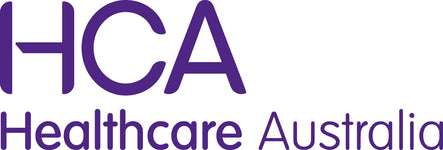
Compliance: Can I lead our organisation to Audit Success?
Europeans first documented the Komodo Dragon in 1910. In 1912 a study of the terrifying creature found that they could kill large mammals, including humans, by biting and infecting their victim with multiple strains of bacteria found in the Komodo’s mouth. This was found to be a scientific fairy tale when, in 2009, it was discovered by a Victorian Venom Researcher that dragons use a lacerating motion to ooze a toxin into wounds during a more prolonged, and somewhat chaotic attack. With this toxin, the victim rapidly decreases blood pressure, hastens blood loss, and sends a victim into shock, rendering it too weak to fight.
How does this relate to Aged Care? The concept that we don’t know what we don’t know connects many aspects of our lives. We often accept outdated and unexplored information, and we do not seek to learn new knowledge and concepts, for a variety of reasons. In this climate of scrutiny on the industry, when Quality Resources are available, Residential Aged Care Registered Nurses and Facility Managers no longer have the luxury to not actively incorporate evidence-based learnings to accommodate legislative changes and change expectation.
The July 2020 release of findings from over 200 audit visits by the Aged Care Quality and Safety may give some indication on focus areas where we can actively improve outcomes through the challenges of others. Many audit failures relate to Standard 3 Personal Care and Clinical Care Breaches- 448 breaches in total. This figure is based on breaches before the second wave of COVID-19 that has again shown Aged Care in a less than favourable light.
These findings may help us to identify where we need, as an industry, to focus our learning and improve our understanding to provide a working environment that meets the standard of care that should be provided.
Some of the commonly misunderstood practices and models of care are demonstrated in the areas of:
• Medication administration
• Wound Care
• Pain Management
• Risk Management
• Infection Control
• Referral Management
• Documentation
What are your Obligations as a Registered Nurse or Facility Manager?
If you aren’t already familiar with the Aged Care Quality Standards, the associated guidance and resource material, and the recent updates to legislation, you may not be implementing best practice principles for your organisation.
Without being comfortable with new evidence, it is difficult to know where improvements can be made. This is akin to treating a Komodo Dragon bite with antibiotics when current principles show this treatment to be ineffectual and outdated. It is the responsibility of the organisation leader to know the current best practice and to share that in the most appropriate way for the organisation. This includes setting up industry-approved behaviour models, encouraging open non-judgemental reporting and documenting based on current practice, for example, Pain Management documentation templates for Aged Care, developed by the Australian Pain Society.
If you re unsure about where you might be risking audit success, beginning with HCA’s Newest Module- Understanding the Commission’s Most Non-Compliant Requirements for Nurses and Managers (ESSCM) is a good starting point. Unlike the Komodo Dragon, we have access to learning to implement positive change. And we do not have to wait 100 years before we learn what we didn’t otherwise know.
